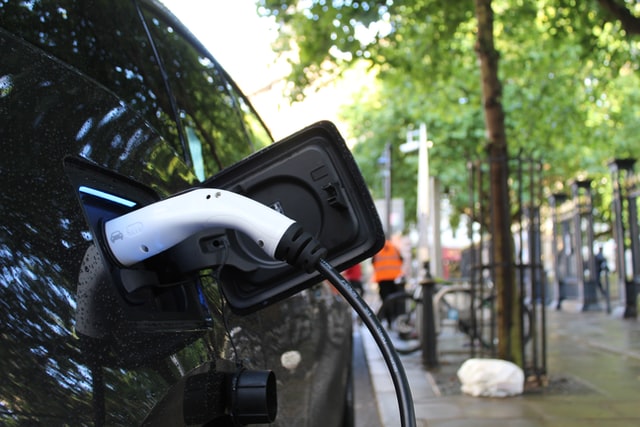
Is the large-scale promotion of electric cars a solution to ease the climate change?
Photo by Andrew Roberts on Unsplash
By Bingzheng Xu
As we enter the 21 century, climate change has gradually become one of the most crucial environmental issues that cannot be ignored. The earth has witnessed the most considerable population growth in the history of humanity after the great industrial revolution. The chimneys rise into the sky from uncountable factories on this planet, people’s lives have changed dramatically. Insane growing standard of living has occurred in the past two centuries, and nearly every family has a car, which is considered as one the most convenient transportation tool in the past several decades. However, as climate change and global warming began to affect and threaten all the lives on the earth, it has become a thorny problem we have to face right now.
Data from the EPA (the United States Environmental Protection Agency) shows that the global average temperature has risen 2 ℉ in the last 140 years (1880-2020). “It is unequivocal that human influence has warmed the atmosphere, ocean and land. The long-term trend observed over the past century can only be explained by the effect of human activities on climate.” (EPA, 2020) According to the National Academy of Sciences, human beings mainly contribute to climate change in two ways: 1. Greenhouse gas emissions 2. Reflectivity or Absorption of the suns energy.
Greenhouse gases mainly refer to carbon dioxide, methane, and nitrous oxide. LeaseCar. U.K. (2020) pointed out that Transport accounts for around 30% of global carbon emissions, and 72% of these emissions come from road transportation – from cars, vans, lorries, buses and other road vehicles. As transportation takes the most extensive account in terms of greenhouse gas emissions, international organizations and governments began to introduce regulations to promote electric cars to ease climate change by reducing carbon emissions. The government of U.K. declared on its website that it takes a “historic step towards net-zero with the end of the sale of new petrol and diesel cars by 2030” (GOV.UK, 2020). The president of COP 26, Alork Sharma, also pointed out “Today’s £500 million pledge will help our automotive industry transition towards electric vehicle production, open up new opportunities to build zero-carbon vehicles right here in the U.K., while strengthening regional supply chains with new Gigafactories and creating thousands of new highly skilled jobs” (Sharma, 2022). Accordingly, the European Commission unveiled in July 2021 that it would effectively ban the sale of petrol and diesel vehicles in E.U. from 2035. (EUobserver, 2021) Moreover, as the largest carbon-emitting country with the largest population, China also implemented a policy that plans to achieve new energy vehicles(especially electric cars) accounting for 20% of new car sales by 2025. As all the data and policy shows, promoting electric vehicles could significantly mitigate climate change worsening from the angle of emission reduction. Is that really the case? Probably not.
A report called “ Energy Trend December 2021” published by the U.K. government indicates that fossil fuels generated 45% of electricity in the U.K. in 2021. In comparison, the 2021 annual report of the U.S. Energy Information Administration shows that 61% per cent of electrical power was coming from fossil fuels. Moreover, according to the National Bureau of Statistics of China, the electricity generated from thermal power(consuming fossil fuel) will take up 70% in 2021. These are the data before the large-scale promotion of electric vehicles. It is foreseeable that after a large number of electric vehicles are put into the market, there will be a tremendous increase in the consumption of electricity, which would definitely cause more and more consumption of fossil fuels and even produce more greenhouse gases.
Another fact that people usually ignore is that most electric cars use lithium iron phosphate batteries; these kinds of batteries are complicated to recycle and would produce other environmental pollution while being manufacturing and recycling. In October 2021, Tesla announced switching all standard range (entry-level) versions of its cars to the Lithium Iron Phosphate (LFP) battery chemistry globally. With the pollution from manufacturing and electricity consumption, it is hard to determine that electric cars would be the future solution to climate change. However, some scientists pointed out that we may have more advanced and efficient power generation technologies in the future to let us get rid of the dependence on fossil fuels as the mature of geothermal power and tidal power. In addition, some experts also think that shifting the carbon emission from individual vehicles to power generation plants would make it more convenient to upgrade technology to reduce uniform carbon emissions.
Conclusively, the extensive promotion of electric cars would possibly not be a perfect solution to ease climate change, especially for some countries that depend on fossil fuel power generation. Nevertheless, it may be a decent solution in the future when we have more sustainable measures to generate electricity.

0 Comments